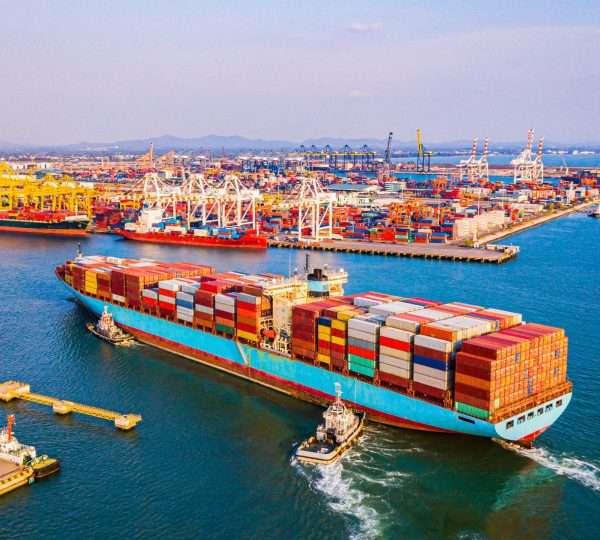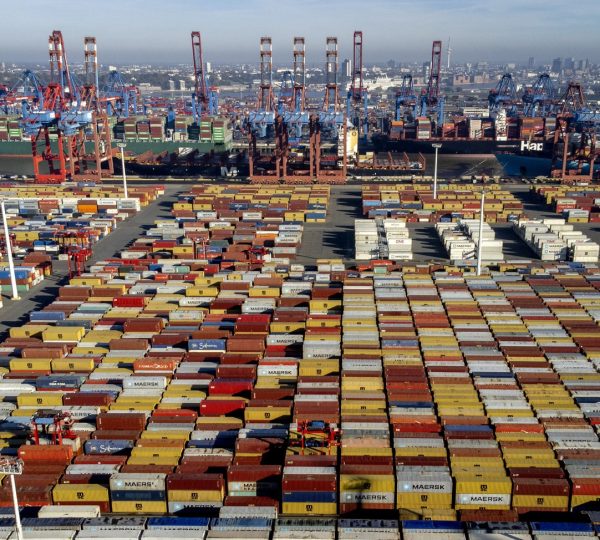
DTFU International Logistics Co.,Ltd
Shenzhen DTFU International Logistics Co., Ltd. was established in Shenzhen, China, in 2008. We specialize in offering comprehensive international logistics services for shipments originating from China.
Our services cover a wide range of options, including Ocean Freight, Air Freight, Amazon FBA, Warehouse & Storage Services, Consolidated Shipments, Insurance, Customs Clearance, and Clearance Documents. Whether you require efficient transportation by sea or air, assistance with Amazon FBA shipments, secure warehousing and storage solutions, consolidated shipments for cost-effective handling, insurance coverage for added protection, or expert support with customs clearance and necessary documentation, we have you covered.
Our expertise in these areas enables us to cater to the diverse needs of our clients and ensure seamless logistics operations for their shipments which shipping from China.
Annual Containers

Packages Delivered

Customers Quantity

Commercial Goods

Why we are different
ONE-STOP LOGISTICS SERVICES
With networks in main seaports/airports and strong domestic logistics ability, we can pick up cargo to ship it out from any city in China to any country even with several suppliers’ consolidation under SOP management.
RELIABILITY AND PROFESSIONAL
Basenton China freight forwarder has lots of experienced professionals. we ensure and secure all our shipments, safety is our priority. provide the best one-stop logistics services
OPERATIONAL EFFICIENCY
Giving one-stop logistics services plans within 10mins and quotation within 30min after receiving the cargo details. Selecting the best carrier, schedule, and cost- effective price combination to meet customers’ logistics
REACTIVITY
Make a request and you will be contacted within 24 hours maximum.
COMPETITIVE FREIGHT
As a China freight forwarder, we provide the most competitive sea freight, air freight, DHL FedEx UPS TNT freight.
SAFE AND ON-TIME DELIVERY
Updating every step of shipment every day with pictures. Guarantee the safety and on-time delivery in priority by one-stop operation.

Unraveling the Shipping Mysteries A Comprehensive Guide to Understanding How Long Taobao Delivery Takes Around the Globe how long does taobao shipping take
IntroductionIn the vast world of e-commerce, Taobao, China’s largest online marketplace, has established itself as a hub for a myriad of products at unbeatable prices. However, when it comes to intern…

Shipping Success Navigating the Container Route to USA – Unleashing International Trade Opportunities container to usa
IntroductionIn today’s globalized world, businesses and individuals frequently rely on shipping containers to transport goods across international borders, including to the United States. Containers h…

Shipping Delights Unpacking Taobao’s Global Reach – Does Your USA Address Welcome Alibaba’s Online Haven? does taobao ship to usa
IntroductionIn the era of globalization and e-commerce, online shopping platforms like Taobao have become a haven for bargain hunters and enthusiasts seeking unique products from across the globe. As…

Revolutionizing Living Unveiling China’s Eco-Innovations – The Alluring Trend of Container Homes container home from china
IntroductionIn recent years, container homes have emerged as a popular and innovative solution for affordable, sustainable housing across the globe. These prefabricated structures, often sourced from…

Unpacking the Cost A Comprehensive Guide to How Much Does It Cost to Ship Your Way Across Seas with a Shipping Container how much does it cost to ship a shipping container
IntroductionShipping a shipping container may seem like a daunting task, particularly when it comes to calculating the associated costs. The price to move these massive steel boxes across oceans and c…

Unlocking the Digital Wallet Exploring Taobao Payment’s Revolutionary Impact on Online Shopping Experience
IntroductionIn the realm of e-commerce, Alibaba’s Taobao, one of the world’s largest online marketplaces, has revolutionized shopping experiences for consumers across China and beyond. At the heart of…


 Afrikaans
Afrikaans Albanian
Albanian Amharic
Amharic Arabic
Arabic Armenian
Armenian Azerbaijani
Azerbaijani Basque
Basque Belarusian
Belarusian Bengali
Bengali Bosnian
Bosnian Bulgarian
Bulgarian Catalan
Catalan Cebuano
Cebuano Chichewa
Chichewa Chinese (Simplified)
Chinese (Simplified) Chinese (Traditional)
Chinese (Traditional) Corsican
Corsican Croatian
Croatian Czech
Czech Danish
Danish Dutch
Dutch English
English Esperanto
Esperanto Estonian
Estonian Filipino
Filipino Finnish
Finnish French
French Frisian
Frisian Galician
Galician Georgian
Georgian German
German Greek
Greek Gujarati
Gujarati Haitian Creole
Haitian Creole Hausa
Hausa Hawaiian
Hawaiian Hebrew
Hebrew Hindi
Hindi Hmong
Hmong Hungarian
Hungarian Icelandic
Icelandic Igbo
Igbo Indonesian
Indonesian Irish
Irish Italian
Italian Japanese
Japanese Javanese
Javanese Kannada
Kannada Kazakh
Kazakh Khmer
Khmer Korean
Korean Kurdish (Kurmanji)
Kurdish (Kurmanji) Kyrgyz
Kyrgyz Lao
Lao Latin
Latin Latvian
Latvian Lithuanian
Lithuanian Luxembourgish
Luxembourgish Macedonian
Macedonian Malagasy
Malagasy Malay
Malay Malayalam
Malayalam Maltese
Maltese Maori
Maori Marathi
Marathi Mongolian
Mongolian Myanmar (Burmese)
Myanmar (Burmese) Nepali
Nepali Norwegian
Norwegian Pashto
Pashto Persian
Persian Polish
Polish Portuguese
Portuguese Punjabi
Punjabi Romanian
Romanian Russian
Russian Samoan
Samoan Scottish Gaelic
Scottish Gaelic Serbian
Serbian Sesotho
Sesotho Shona
Shona Sindhi
Sindhi Sinhala
Sinhala Slovak
Slovak Slovenian
Slovenian Somali
Somali Spanish
Spanish Sundanese
Sundanese Swahili
Swahili Swedish
Swedish Tajik
Tajik Tamil
Tamil Telugu
Telugu Thai
Thai Turkish
Turkish Ukrainian
Ukrainian Urdu
Urdu Uzbek
Uzbek Vietnamese
Vietnamese Welsh
Welsh Xhosa
Xhosa Yiddish
Yiddish Yoruba
Yoruba Zulu
Zulu